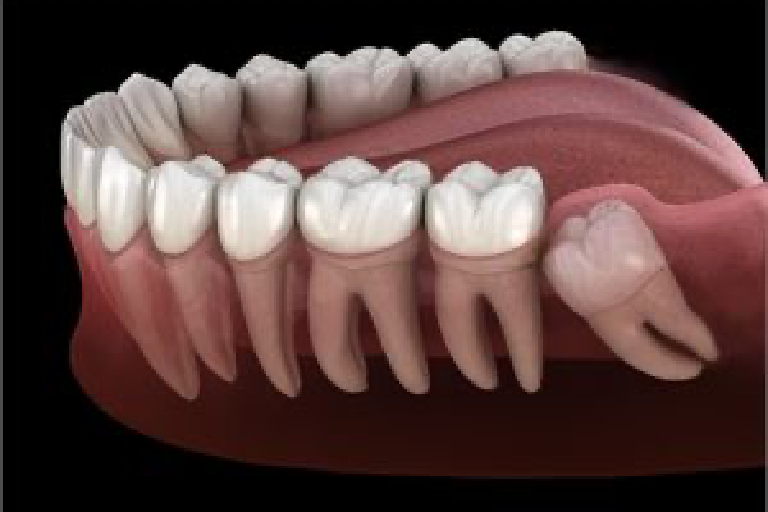Pain in the back side of the upper or lower jaw many times is an early indication that your wisdom teeth are creating trouble. You can experience pressure in the back side of your mouth. Gum tissue nearby erupting wisdom tooth often happens to be sensitive and inflamed. Many people don’t have any symptoms. That’s why you should have your wisdom teeth inspected by a dentist to decide if extraction is required.
Is removal always necessary?
If your wisdom teeth are impacted taking sufficient care of your oral hygiene becomes difficult, so it’s better to have them removed. Many dentists will recommend keeping your wisdom teeth in place if they’re not creating any issues such as decay or gum disease. However, even wisdom teeth that come in correctly can create problems later, So if you keep your wisdom teeth, be sure to regularly brush and floss them well. A dentist may suggest having them removed if:
• There is no space for them to erupt
• The soft tissue in the area gets infected
• They’re hard for you to keep clean
• The impacted teeth are causing pain
What happens when a wisdom tooth is affected?
Wisdom teeth are buried, either partially or completely, in the soft tissue or jaw bone, and are more susceptible to disease and other problems. You cannot clean impacted wisdom teeth appropriately, so they begin to decay and cause disease.
What problems can occur after removal?
Mild to moderate pain is common and likely after an extraction. Some pain and swelling are possible to happen with all extractions. In most cases, painkillers help manage the pain and swelling. Ice is suggested for the first 24 hours to lower swelling.
Is there any way to avoid problems with your wisdom teeth?
Apart from maintaining oral hygiene and visiting the dentist on a regular basis, there are not many patients can or need to do to help them with their wisdom molar pain and problem

